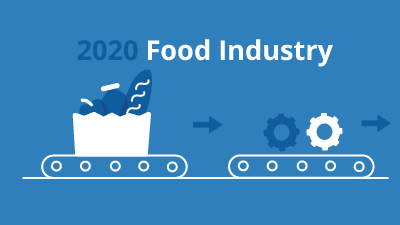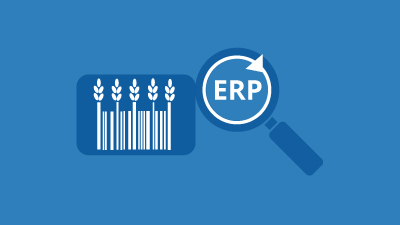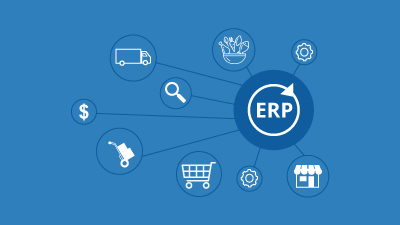2020 Food Industry Trends: How Cloud ERP Can Help

Looking ahead to 2020, one can see many trends shaping the food industry, beyond consumers looking for healthier, more environmentally friendly products. Consumer demand for quality and sustainability, along with increasing costs, are creating challenges for food industry organizations. An advanced cloud ERP system like Acumatica can help food businesses address some of the most significant issues looming in the near future. Here are the highlights:
Rising Logistics Costs
Everything from operating costs to the price of materials, ingredients and fuel are increasing. This trend creates budgeting challenges for food businesses. Process inefficiencies can further strain finances. An ERP logistics dashboard offers a solution, providing full visibility into production costs, delivery times and fleet efficiency as well as trends. The right data can be used to reduce delays and improve efficiency throughout the supply chain.
Increasing Labor Costs
The cost of labor is quickly rising, driven in part by new federal laws for increased minimum wages and higher costs of benefits, including health care. Worker shortages compound the problem. In addition, businesses are facing increased costs associated with regulatory compliance for training and licensing Regulations also create requirements for food traceability, sourcing, labeling and nutrition.
ERP provides insights needed to meet these demands. Visibility into labor costs by product line, facility location and even individual order can reveal trends and inefficiencies that can impact decision making. These metrics can be compared to trends in product order status, timely delivery or who was involved in order fulfillment.
Changing Consumer Tastes
Consumers are becoming more mindful of the foods they purchase. They are becoming increasingly health-oriented and demanding of ethnic varieties and transparent, sustainable practices. The data generated by an ERP must factor in sales and profitability of new product lines that satisfy consumer sentiment. For example, individual products such as an ethnic variation of a larger product line can be closely tracked to determine its success.
ERP and Sustainability
Environmental awareness and the push for sustainable agribusiness is affecting consumer attitudes about the foods they buy. In practical terms, this means getting better at tracking sources of supply and aligning with sustainably certified producers, e.g. “Dolphin Safe Tuna” and so forth. A cloud ERP facilitates these processes by generating and centralizing data so stakeholders can access information based on their roles in the organization—from any connected device. To support a business’s sustainability efforts, ERP can allow one to:
- Source and track healthy, natural ingredients and additives for food products.
- View the origins of items (to accommodate consumers preferring locally sourced foods).
- Track the amount of waste produced over time and from where.
- See what packaging is used and how more sustainable options are driving profitability/expenses.
- Measure energy consumption vs. improving process efficiency and meeting demand.
An ERP can also help a business adapt to changes in market structure. For example, if a food company is shifting from a traditional retail model to personal delivery of fresh meals or providing vending solutions, Acumatica can surface the data needed to measure success. From the quality of food ingredients to fleet efficiency, to the procurement of restaurant and food-service equipment, ERP is reshaping how food service companies operate.
ERP Software for Food and Beverage
With the right business management solution, you can take control over everything the product-based business needs, and with the right help, you can have a software built for the unique challenges of the food and beverage industry:
-
Gain the visibility you need to implement a Corrective Action, Preventive Action (CAPA) plan
-
Understand every element of your business and avoid getting caught off guard when a recall happens
-
Minimize risk and disruption with real-time data ready for the challenges of the recall process
-
Integrate your entire system to facilitate tracking, traceability, and communication
-
Increase your reputation by providing the highest levels of transparency to consumers and regulators
At Cloud 9 ERP Solutions we partner with food services businesses to succeed. To learn more about implementing for the future, contact us or request a demo! Or, learn more in our other articles:
Food MRP: What Food Manufacturers Need in ERP
Meeting the Demands of the FSMA With ERP Software
Unique Challenges for Food and Beverage Distributors


